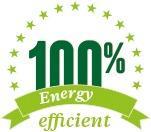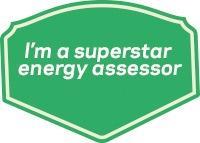What’s involved in working as a Green Deal assessor, what training is required and what skills are needed? Read on to find out

Would your ideal career involve working in a fast-growing area of construction? Perhaps you also want to make the built environment more sustainable? If you would like to do both, it’s worth considering working on Green Deal projects.
The government’s scheme to help homes and business properties lower their energy bills only went live at the start of the year, and so far take-up has been slower than expected, but many in the industry believe it has the potential to grow.
Rob Lambe, energy services managing director at Willmott Dixon, one the contractors delivering Green Deal projects, says: “The Green Deal is just going to get bigger, I think, so there’s a huge opportunity for people to make a living in this market.” So what should you know if you want to be one of those people?
Getting started
First it’s worth noting that there are good reasons to believe the Green Deal will provide a growing source of income for those involved. The latest figures from the Department of Energy and Climate Change in May showed that 9,522 Green Deal assessments were carried out in April, compared with 7,465 in March - an increase of 28%. The scheme, which has focused on domestic jobs so far, is targeted at some 26 million homes and, eventually, 4.5 million businesses.
You could work for a retailer, a local authority, housing association or contractor
Philip Stott, Asset Skills
Each Green Deal retrofit starts with an assessor (or adviser) visiting the property to work out how energy efficient it is. This means looking at energy bills and inspecting the building’s structure, fabric and the quality of its materials. The assessor then draws up a plan to improve the building’s energy efficiency. This informs improvement works carried out by installers and overseen by a Green Deal Provider company, such as Willmott Dixon. Assessors can work as sole traders or for one of a range of companies and public bodies carrying out Green Deal assessments.
Green Deal advisers will probably also be able to work for energy companies, not under the deal but under the government’s Energy Company Obligation (ECO).
Philip Stott, programmes manager at the sector skills council Asset Skills, says: “Under ECO, energy companies have created a £1.3bn pot to invest in improving the

energy efficiency of low income households. Green Deal assessors may well be needed here too.”
Wherever you work, Lambe says you must start with a basic understanding of building performance. “You need to know about the performance of buildings, including during the in-use phase, and how this is affected by the design, manufacture and installation of elements and whether the occupiers use the building correctly.”
Training and skills
In fact, to be a Green Deal assessor you must already be a qualified energy assessor for either domestic or non-domestic buildings. Energy assessors issue Energy Performance Certificates for buildings. If you are not an assessor yet, you can take a New Entrant Green Deal Adviser Course, which qualifies you as an energy assessor. This is available from the BRE, among other providers. The BRE course costs £2,345 and takes three days.
You also need customer service skills. Lambe says: “You’ll be meeting members of the public - often vulnerable people such as the elderly - and advising them on technical issues and how the financing will work. So you need to be able to explain things well and in a way that complies with regulations such as consumer protection laws. You need a touch of sales-type skills too because you might need to persuade people that making a change will benefit them.”

Once you are a qualified energy assessor, to work on the Green Deal you will need to attain a level 3 certificate or diploma in Domestic Green Deal Advice or a level 4 certificate or diploma in Non-Domestic Green Deal Advice. Both courses entail face-to-face teaching and study done in your own time. This is followed by a written exam and a practical in which you are assessed while visiting a property and delivering advice.
While becoming an energy assessor means you can work out the energy efficiency of a building, usually with the aid of an electronic tool such as a palm pilot, Green Deal advisers take that assessment a step further by going on to offer solutions. John Middleton, senior instructor at the National Construction College, says: “The Green Deal qualification allows you to expand as a professional on being an energy assessor. You learn how to advise on improving performance in a number of ways. These range from changes to the buildings such as adding the appropriate insulation or LED bulbs, which save 90% of the energy needed for lighting, to advising residents on how to improve the way they use their home, say, by avoiding opening windows to avoid heat escaping.”
There is one more key difference between energy assessors and Green Deal assessors. Whereas the former are trained mainly to work for estate agents, as energy performance certificates are required when a property is sold, Green Deal assessors work for wider range of companies and public bodies. Stott says: “Even DIY stores like B&Q are offering Green Deal assessments, so you could work for a retailer, a local authority, housing association or contractor, large or small.”
Some caveats
A good number of reputable training providers, including the National Construction College and BRE, offer Green Deal qualifications. They are provided by several

awarding bodies including City & Guilds and ABBE, and course fees range from around £1,000 to £2,500. However, Stott warns that you must shop around for training providers. “There is a wide variety of courses - not in terms of content, but in terms of cost and quality. While it’s great to blend in-class and online learning, some courses might be very cheap but don’t offer enough support.”
Steer clear of courses that offer only two to three days of classroom time and promise to qualify you in a week, he says. Asset Skills wants to see around five days spent in class combined with two months of online study. He adds: “We do not endorse the five-day from start to finish courses at all. This really isn’t enough time to learn what’s required.”
A final issue to consider is whether Green Deal training is right for you. Stott warns that the Green Deal scheme is still in the early stages. “Considering the training could cost you over £1,000, it is worth thinking about what you will get at the end of it. Basically you need a good business plan.” So make sure you have an idea of which firms you might join or subcontract to.
If you do decide to become a Green Deal adviser, as long as you choose a good quality course and have a clear idea of where you want to work, you should be on track for a career with growth prospects. Into the bargain, you will be doing your bit to make the UK more sustainable.



























No comments yet